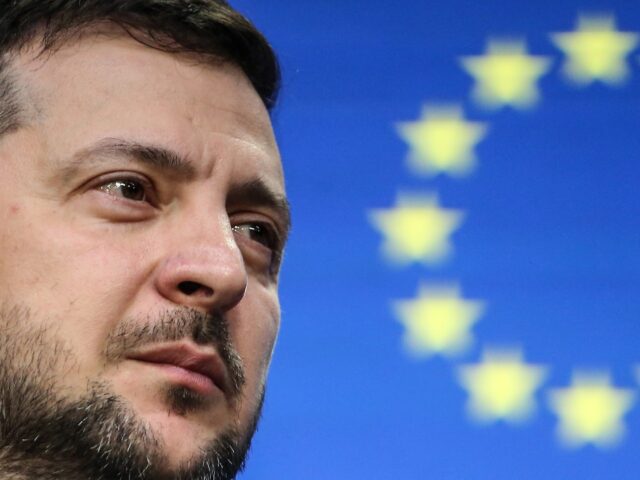The fervent push from Brussels to admit Ukraine into the European Union would see €186 billion transferred to Kyiv from other member states in addition to the billions poured into the country to subsidise the war effort against Russia.
According to leaked internal assessments from the secretariat of the EU Council of the cost of admitting nine new countries into the bloc, many states that hitherto were net beneficiaries of wealth transfers would need to begin sending their limited resources abroad and wealthier economies such as France, Germany, and The Netherlands would need to significantly increase their foreign contributions.
“All member states will have to pay more to and receive less from the EU budget; many member states who are currently net receivers will become net contributors,” the document seen by the Financial Times stated.
The estimates on the increased budget for the multinational financial framework for admitting the nine new nations, which would include Ukraine, Moldova, Georgia as well as six Balkans states, would total €256.8 billion ($271bn/£222bn), according to the EU document. This would increase the total wealth distribution scheme’s budget by 21 per cent to €1.47 trillion or around 1.4 per cent of the gross national income of the 36 member states.
Of this, some €186 billion would be sent to Ukraine alone over the seven years after admission. Under the EU’s current structures, Ukraine would be entitled to €96.5 billion from the EU’s Common Agricultural Policy and at least €61 billion to improve its infrastructure from the so-called cohesion funds. This would also mean that other member states would no longer be entitled to such infrastructure funds, including the Czech Republic, Cyprus, Estonia, Lithuania, Malta, and Slovenia.
However, the internal EU document acknowledged that agricultural subsidies may serve as a more difficult pill to swallow for the current member states, who would likely see funding for farms decrease by around 20 per cent due to the money being sent to Ukraine and the other eight proposed countries.
“[These] very significant challenges for the EU . . . will need to be thoroughly addressed also in order for this new enlargement to be at least accepted, if not supported by our citizens,” the document stated.
Ukraine, which would become the country with the largest usable farmland in the EU if admitted, has already come into conflict with existing member states, including Hungary, Poland, and Slovakia. The three nations are currently seeking to impose trade barriers on Ukrainian agriculture after the EU lifted restrictions, potentially setting the stage for farmers in Europe to have their prices severely undercut by the cheaper labour force in Ukraine.
Last week, Hungarian Prime Minister Viktor Orbán — who would have a veto over the admission of Ukraine into the bloc — said that there are “very difficult” questions about allowing the former Soviet state into the EU, particularly that the country’s borders are currently in dispute, with Russia occupying and claiming rights to large swaths of territory that Kyiv has vowed to recapture.
Nevertheless, Brussels is pushing hard for Ukraine to join the bloc as soon as possible, with even European Parliament President Roberta Metsola suggesting that the normal ascension process should be accelerated for Ukraine and urged for membership talks to begin before Christmas.
Yet the release of the internal financial estimates of Ukraine’s admission may serve as a roadblock, with Mujtaba Rahman of the Eurasia Group saying: “These numbers aren’t going to work for anyone… They make clear that root and branch reform of the EU budget and its major policies will be needed if Ukraine is to ever join, or that the entire Ukraine question will have to be dealt with innovatively and outside of existing EU budget structures.”
Despite the stark economic realities — not to mention the potential national security implications — of absorbing Ukraine, Irish Prime Minister Leo Varadkar said in response to the leaks: “I think it’s really important that when we look at these questions we don’t see them just as a financial calculation,”
“Enlargement is always good for Europe, it helps to provide us with security, it helps to embed democracy and human rights, and it also helps the European economy to grow in the round.”

COMMENTS
Please let us know if you're having issues with commenting.